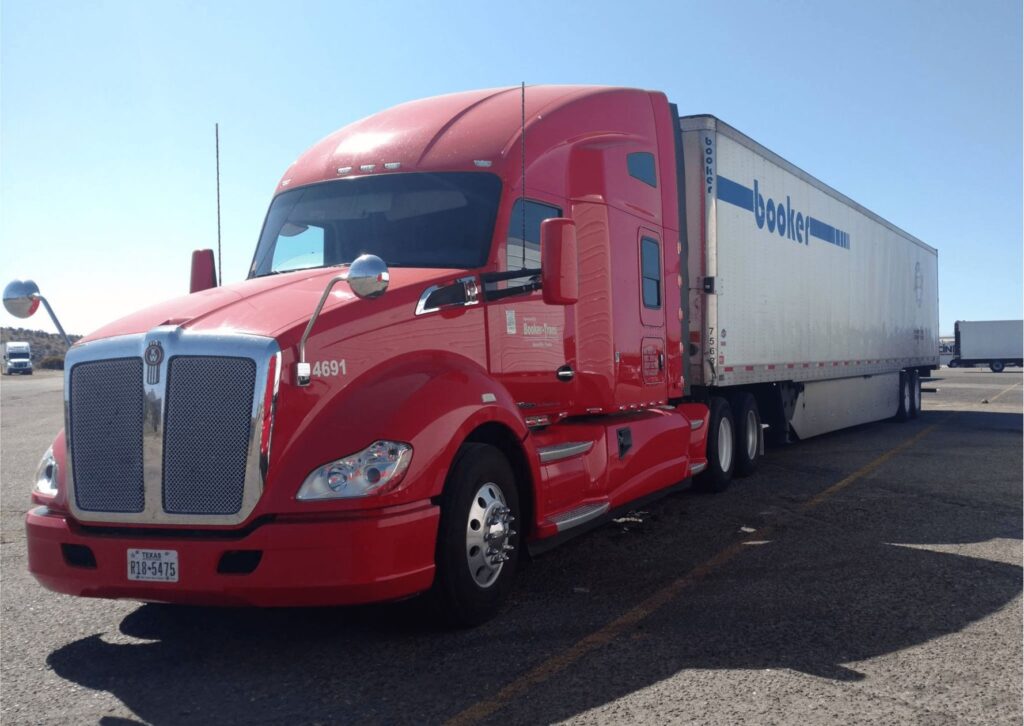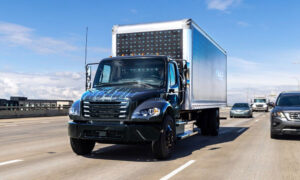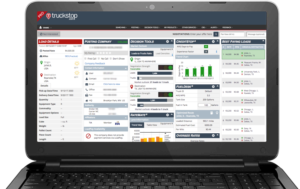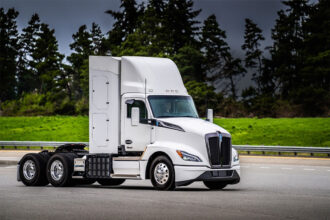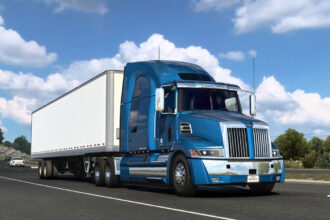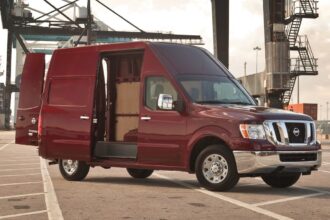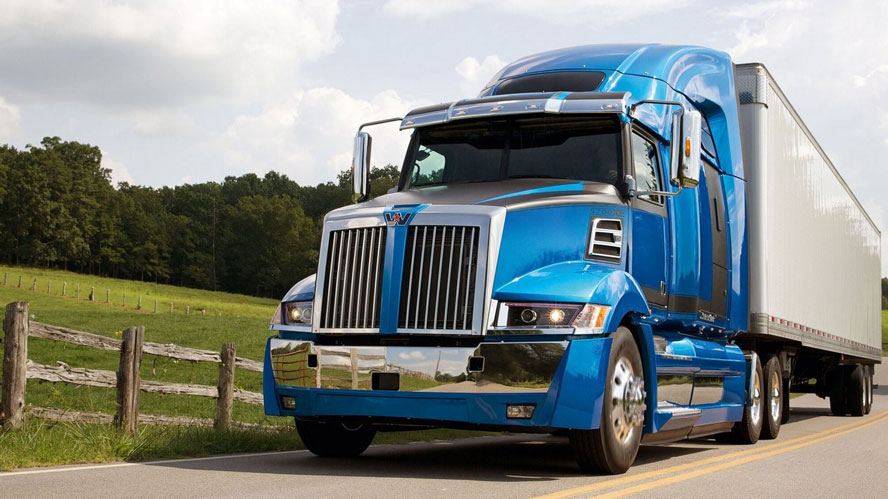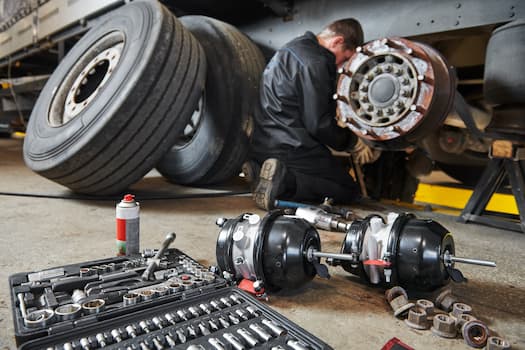Table of Contents
Are you ready to steer your ambition toward success in the trucking industry? Crafting a comprehensive 18-wheeler business plan is your roadmap to making that journey a smooth and successful one. Just like a skilled trucker plans every route, pit stop, and cargo load, you too can chart the course for your business’s triumph.
Think of this guide as your trusty navigator, helping you draft a business plan that not only impresses potential investors but also provides you with clarity and direction. From defining your business concept to plotting your financial course, explore each step carefully, ensuring that your 18-wheeler business is on the path to prosperity.
So, hop in and fasten your seatbelt, and embark on the exhilarating journey of creating an 18-wheeler business plan that drives your success!
To Craft a Comprehensive 18-Wheeler Business Plan:
- Define Your Business Vision
- Analyze Market Trends, Demand, and Competition
- Provide a Detailed Description of Your 18-Wheeler Business
- Specify Your Business’s Legal Structure
- Detail the Types of Freight or Cargo You Intend to Transport
- Develop a Marketing and Sales Strategy
- Lay Out Your Operational Plan
- Present Financial Projections
- Identify Potential Risks and Challenges in the Trucking Industry
- Summarize the Key Points of Your 18-Wheeler Business Plan
Let’s dive in!
1. Define Your Business Vision
To compose an outstanding 18-wheeler business plan, defining your business vision is the first crucial step in crafting a successful 18-wheeler business plan.
Here’s how to do it:
- Articulate Your Vision: Start by envisioning what you want your 18-wheeler business to become. Imagine the future where your business thrives and grows. Picture the impact you want to make in the industry.
- State Long-term Goals: Clearly outline your long-term goals and objectives. These could include the number of trucks you want to operate, your target markets, revenue milestones, or expansion plans. Be specific and realistic.
- Express Passion and Commitment: Share your passion for the 18-wheeler industry. Explain what drives you to embark on this journey. Convey your unwavering commitment to the venture, assuring the reader that you’re dedicated to overcoming challenges and achieving your vision.
>>>MORE: How to Start an 18-Wheeler Business
2. Analyze Market Trends, Demand, and Competition
To craft a successful 18-wheeler business plan, analyze market trends.
Market research and analysis are pivotal for your 18-wheeler business plan. Begin with comprehensive research on the trucking industry, diving deep to understand its nuances. Explore various sources, including industry reports, trade publications, and government data. Next, analyze the latest market trends, paying attention to shifts in demand, emerging technologies, and regulatory changes. Assess how these trends might impact your business.
Identify your competitors within the trucking industry and examine their strengths, weaknesses, and market positioning. This analysis will help you differentiate your business and develop a competitive edge. Precisely define your target market, considering industries or businesses most likely to require your 18-wheeler services. Take into account factors like geographic locations, cargo types, and shipping needs.
3. Provide a Detailed Description of Your 18-Wheeler Business
To create a strong 18-wheeler business plan, provide a detailed description of your 18-wheeler business.
In the business description section of your 18-wheeler business plan, paint a vivid picture of your venture. Craft a detailed narrative that conveys the essence of your business to potential investors and stakeholders. Start by explaining the purpose and necessity of your services in the trucking industry. Highlight the specific problems or challenges your business aims to address, such as efficient long-haul transportation or specialized cargo handling.
Use compelling language to describe any unique features or advantages that set your 18-wheeler business apart from the competition. Whether it’s cutting-edge technology, environmentally friendly practices, or exceptional customer service, emphasize how these aspects contribute to the success and sustainability of your business.
4. Specify Your Business's Legal Structure
To prepare an accurate 18-wheeler business plan, specify your business’s legal structure.
In this section of your 18-wheeler business plan, you must clearly define your business’s legal structure and commitment to compliance. Start by specifying your chosen legal structure, such as sole proprietorship or LLC, explaining why it suits your business’s long-term goals. Dive into the world of permits, licenses, and regulations, outlining your plans to obtain and maintain them while emphasizing your commitment to safety and environmental standards.
Discuss insurance requirements comprehensively, including liability and cargo coverage, and detail your safety measures, such as vehicle inspections and driver training programs. This section is crucial for demonstrating your understanding of the legal and regulatory landscape, providing assurance to potential investors and partners about the solid foundation of your 18-wheeler business.
5. Detail the Types of Freight or Cargo You Intend to Transport
To generate a good 18-wheeler business plan, describe your area of specialization.
Start by detailing the specific types of freight or cargo your business intends to transport. Whether it’s general goods, perishables, hazardous materials, or specialized items, provide a comprehensive overview of your cargo focus. Next, describe your fleet of 18-wheelers in detail. Mention the make, model, and capacity of each truck. Highlight any specialized equipment or features that set your fleet apart, such as advanced tracking systems or eco-friendly technologies.
Additionally, emphasize any supplementary services your business will offer. If you’re providing logistics solutions, describe how these services will complement your core transportation offerings. If warehousing is part of your strategy, explain its role in your business model.
6. Develop a Marketing and Sales Strategy
To write a presentable 18-wheeler business plan, develop a marketing and sales strategy.
Take proactive steps to develop a compelling marketing and sales strategy that attracts and retains customers effectively. Define your pricing strategy and competitive positioning to establish a strong market presence. Provide a clear outline of your sales process, demonstrating your ability to acquire and retain customers successfully. This proactive approach ensures your 18-wheeler business is well-prepared to thrive in a competitive marketplace and achieve its goals.
7. Lay Out Your Operational Plan
To construct a compelling 18-wheeler business plan, craft a comprehensive operational plan that outlines the daily workings of your 18-wheeler business. Clearly articulate your strategies for dispatch, maintenance, and scheduling, ensuring efficient and smooth operations.
Elaborate on your approach to managing driver logistics, emphasizing safety and training protocols that will be in place. Detail any potential partnerships or collaborations with suppliers or clients, showcasing your commitment to fostering valuable relationships in the industry.
By addressing these critical aspects in your operational plan, you demonstrate your preparedness and dedication to building a successful 18-wheeler business.
8. Present Financial Projections
To create a strong 18-wheeler business plan, prepare robust financial projections that provide a clear picture of your 18-wheeler business’s financial outlook. Present detailed income statements, balance sheets, and cash flow projections, ensuring accuracy and transparency.
Incorporate comprehensive data on revenue sources, expenses, and profitability, leaving no room for ambiguity. Highlight significant financial milestones and growth projections to showcase the potential of your business to investors and stakeholders.
By delivering well-structured financial projections, you instill confidence in your 18-wheeler business’s financial viability and its ability to thrive in the competitive trucking industry.
>>>GET SMARTER: 18-Wheeler Business Accessories you Need to Succeed
9. Identify Potential Risks and Challenges in the Trucking Industry
To compose an outstanding 18-wheeler business plan, conduct a thorough risk assessment specific to the trucking industry—and identify potential challenges that may impact your 18-wheeler business. Clearly outline your strategies for risk management and mitigation, demonstrating your preparedness for various scenarios. Emphasize the importance of contingency plans to address unexpected disruptions efficiently. These plans should ensure minimal disruption to your operations and the safety of your cargo and team in unforeseen circumstances.
This section is crucial for reassuring potential investors and partners that your 18-wheeler business is equipped to handle and navigate risks effectively, ensuring its long-term success and stability.
10. Summarize the Key Points of Your 18-Wheeler Business Plan
To write a compelling 18-wheeler business plan, craft a concise but compelling executive summary that encapsulates the essence of your 18-wheeler business plan. Summarize the key components, such as your business idea, mission, target market, and financial projections. Highlight why your business is a compelling investment opportunity, emphasizing its potential for profitability and growth within the trucking industry.
Encourage potential investors or lenders to delve into the full plan, assuring them that the detailed content will provide a comprehensive understanding of your 18-wheeler business concept and its potential for success.
Conclusion
In conclusion, crafting a winning 18-wheeler business plan requires you to define your vision clearly, conduct thorough market research, and present your business in a compelling way. You must address legal and compliance aspects diligently, outline your services and fleet details, and develop a solid marketing and sales strategy.
Your operational plan, financial projections, and risk mitigation strategies should demonstrate your preparedness. Finally, your executive summary should grab the attention of potential investors or lenders. With these steps, you’re poised to create a roadmap for a successful 18-wheeler business journey.


